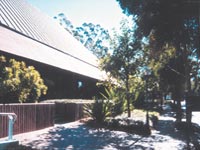Climate Law - JURD7466
Faculty: Faculty of Law
School: Faculty of Law
Course Outline: See below
Campus: Sydney
Career: Postgraduate
Units of Credit: 6
EFTSL: 0.12500 (more info)
Indicative Contact Hours per Week: 2
Enrolment Requirements:
Pre-requisite: 36 UOC of JURD courses for students enrolled prior to 2013. For students enrolled after 2013, pre-requisite: 72 UOC of JURD courses.
Excluded: LAWS8066
CSS Contribution Charge: 2 (more info)
Tuition Fee: See Tuition Fee Schedule
Further Information: See Class Timetable
View course information for previous years.
Description
The course examines climate law and policy in Australia, from the ongoing debates at the national level, to regulations attempting to adapt to the effects of climate change at the local level. As well as carbon pricing and emissions trading, the course covers issues such as corporate reporting and directors' duties, urban planning and development, and climate litigation. The course will include some comparative analysis of climate law in other jurisdictions, particularly the European Union and the United States.
Main Topics
- The science and economics of climate change
- History of the international climate regime
- Structure and framework of the UNFCCC and Kyoto Protocol
- Climate finance and international development (particularly REDD)
- The development of climate law and policy in Australia
- Emissions trading and carbon pricing laws
- Laws on renewable energy and energy efficiency
- Carbon sequestration (including bio- and geo-sequestration)
- The facilitation of adaptation to climate change through legal frameworks
- Business, risk and climate change
- Climate change litigation
Recommended Prior Knowledge
Course Objectives
Learning Outcomes
- critically discuss the development of climate law and policy in Australia;
- describe the range of laws related to climate change at the local, state, national and international levels;
- identify and understand the climate change related issues that arise in legal practice;
- critically assess the efficacy of Australian climate law within the context of contemporary international challenges;
- demonstrate effective written and oral communication skills by discussing course concepts in a critical, reflective and scholarly manner.
Assessment
| Class Participation | 15% |
| Class Presentation or Group Exercise | 20% |
| Research Essay | 65% |
Course Texts
Resources









